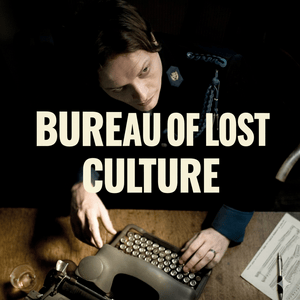This is Penny Rimbaud - Part One
Penny Rimbaud , who has spent more than half a century living the ideals that most of us only talk about, has been described as an activist philosopher, an anarchist, a Zen Buddhist. Though he would likely not recognise those descriptions, he is certainly a poet, a musician, an artist.
Born Jeremy John Ratter in 1943, in the late 1960s, together with artist Gee Vaucher, he founded Dial House, an open community and creative refuge in rural Essex. It became both a home and a hub — a living experiment in anarchism, art, and radical living, from which emerged Crass, a band that tore apart punk’s nihilism and replaced it with a fierce moral energy: anti-war, anti-sexism, anti-consumerism — but pro-peace, pro-freedom, and defiantly DIY.
Their black-and-white graphics, polemical lyrics, and uncompromising stance made them one of the most influential and challenging acts of their time.
When Crass disbanded in 1984, Penny kept on creating, often with Gee. He became a prolific poet, writer, and spoken-word performer, continuing to explore themes of love, pacifism, and spiritual autonomy.
Now in his eighties, he still lives and works at Dial House — still questioning authority, still seeking truth through art and language.
We range back and forth across Penny's personal history and his thoughts on culture, capitalism, art and the very notion of the self.
In his own words:
“There is no authority but yourself.”
----
During this conversation, we hear:
'Dulce et Decorum Est’ - from What Passing Bells (The War Poems of Wilfred Owen)
‘How?’ - from How?
‘Of Summer's Passing' - with Peter Vukomirovic - from Of Summer's Passing
'Oh America' - with Youth - from Oh America
#counterculture #crass #pennyrimbaud #anarchism #capitalism #dialhouse #artschool #


